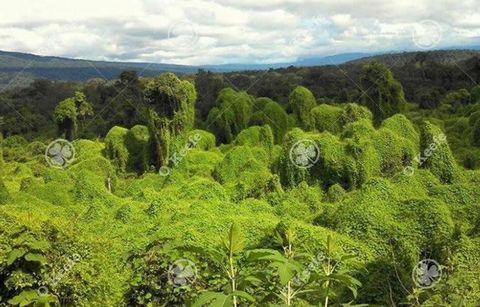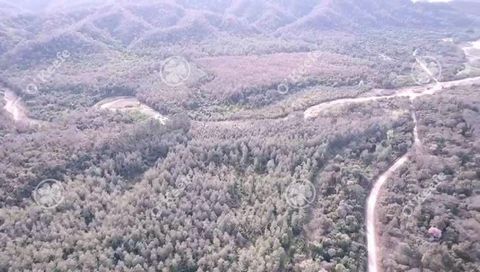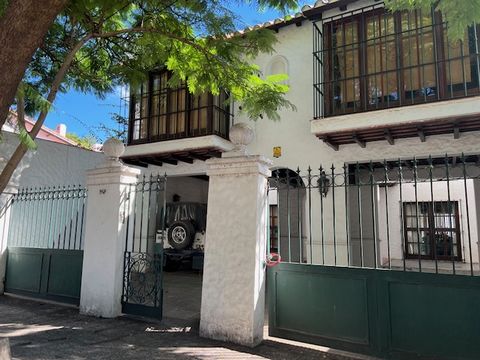Location: It is a property of 6,317 hectares identified with the cadastre 1507 of Oran, located about 30 km west of the city of San Ramón de la Nueva Orán. It is a valley whose east side is formed by the Sierras Bajas de Orán, which separate it from the Abra Grande Farm and on its west side are the foothills of the Serranía del Divisadero, against the San Ignacio and Anta Muerta farms. The water collector of this valley is the Arroyo El Oculto or Quebrada Oculta, which, although it has a very marked low water in spring, has permanent water. It drains into the Blanco River, which is a short stretch upstream from the joints of the San Andrés with the Santa Cruz. Its limits are: To the North: Limit with the Finca Anta Muerta. To the South: with the San Andrés and Blanco Rivers, and Finca Las Juntas de Justo Figueroa To the East: with Fincas Abra Grande and Abra Chica, from Los Dos Ríos SA To the West: with Finca San Ignacio, from Finca San Ignacio SRL CLIMATE: Warm subtropical, with concentrated rainfall in the period November-May. Average rainfall: between 900 and 1100 mm per year. There are agronomic frosts between the months of June to August, generally of medium intensity occurring about 3 to 10 days of event per year. The prevailing winds are from direction SE-NW The rains have Summer – Autumn distribution, totaling an average of 1000 mm. With torrential rains in summer and mild or in the form of rain in autumn. In winter, there are frequent days with sunrises and mornings of dense fog that condenses on the vegetation and constitutes a significant water contribution. Lots of sugarcane can be handled in this property, with good production prospects for harvests from September to November. DESCRIPTION: It is a property of diverse relief, with about 20% of its surface flat or gently undulating with alternatives according to the slope both agricultural-livestock and intensive forestry. They are lands suitable for foresting, obtaining the corresponding permit up to a total of about 500 hectares in massifs The remaining 80% presents a gently undulating and / or broken relief,They were cleared from 1998 to 2001 about 200 hectares of which 152 were reforested The area not cleared is covered by abundant vegetation (semi-exploited Montana Forest). The remaining forest has about 5 to 7 m3 of commercial wood above the minimum authorized cutting diameters per hectare, mainly Cebil and Tipa Blanca, to a lesser extent Lapacho, Quina Colorada, Palo amarillo, Cedro Orán and Pacará. In the riparian areas with the Rio Blanco and its tributaries, there are dense strips of Creole Willow of good development. There is a good amount of future trees of the mentioned species, so it is a relevant area to establish a sustainable Forest Management Plan to obtain a permanent production of rolls, logs and other forest products. It is a property covered mostly by native forest typical of the Yungas Salteñas, located between 400 and 700 meters above sea level, with a preponderance of the basal forest with few montane elements. The use of native wood was interrupted when the property was acquired, that is, more than 20 years have passed without use of the native forest, so in general the populations and diameters have an interesting economic value. In 1998-2001, plots of cultivated forests were planted on a total of 152 hectares, of the species Australian Cedar (Toona ciliata), Australian Oak (Grevillea robusta) and Giant Paradise (Melia azedarach). About half of them still remain. Forested area in Finca El Oculto: 157 ha Paraiso Gigante 3.5 has year 98/99 Toona 16 has year 98/99 Grevillea 10,5 has year 98/99 Total 98/99 : 30 has Toona and Grevillea 99: 30 ha Total year 99 30 has Toona 55 has year 2000 (with 10 hectares to redo) Toona and grevillea 32 has 2001 These lots are in the process of thinning, there are wetter sectors, not well achieved, that can be replanted with Eucalyptus grandis, in good demand in the packaging and pallet industry of Oran and for the construction of greenhouses in the nearby horticultural area. The greatest potential of the property lies in its native forests, with an abundance of species of commercial value, such as Cebil, Cedro, Lapacho, Tipa Blanca, Palo Blanco, Palo Amarillo, Afata, Quina and others. To the value of these products we must add the ease of access throughout the year through Provincial Route No. 18, which crosses the property, and connects with the RN50 a few kilometers from the city of Oran. This existing infrastructure makes it possible to significantly reduce the costs of forest harvesting. Forest Suitability in Native Forest: The property contains approximately 4000 Ha suitable for productive forest management, discounting the protective forests, either by slopes, proximity to channels or belonging to protected areas. A preliminary approach to this activity involves a management of fractions for 10 to 20 years and then repeat the cycle indefinitely. It should even be noted that the proximity to Oran, allows to include in the use species of lower commercial value, destined to the manufacture of containers or pallets for fruits and vegetables, improving the quality of the natural bases of renewal. Species such as Laurel (Phoebe porphyria), Tipas blancas (Tipuana tipu) of great size, Parasitic Maromas (Ficus maroma) present in a sector, Pacays (Inga spp) and several others. Also, in several cases of high value species, the secondary use of this property is the cattle rancher, with mountain livestock, practiced by the locals who reside both in a sector of the farm against the coast of the Rio Blanco, and who also own small plots of subsistence agriculture, groups of citrus plants, avocados, and other fruits of interest. Soils: These are generally undeveloped soils, type A/C profile with limitations due to slope or susceptibility to erosion. In the flat and stabilized sectors they have good depth and fertility. The terraces adjacent to the White River, although they have excess humidity in several sectors, have agricultural aptitude with the appropriate practices. The sectors already forested and harvested above with Australian Cedar and Grevillea present soils with very good aptitude for replanting with Eucalyptus grandis, and its hybrids, since they add an adequate level of rainfall with the proximity to a center of wood consumption such as Oran. –in one of the high terraces, which was dismantled during the years 1998-2001, and where the natural vegetation has been regenerated, the soils are sandy with medium to fine stony, Conditions of purchase: Consult us The data provided are merely illustrative, these being subject to the validation arising from the title deed or municipal plans. The sale is subject to compliance by the owner with the provisions of General Resolution No. 2371 of the AFIP.


